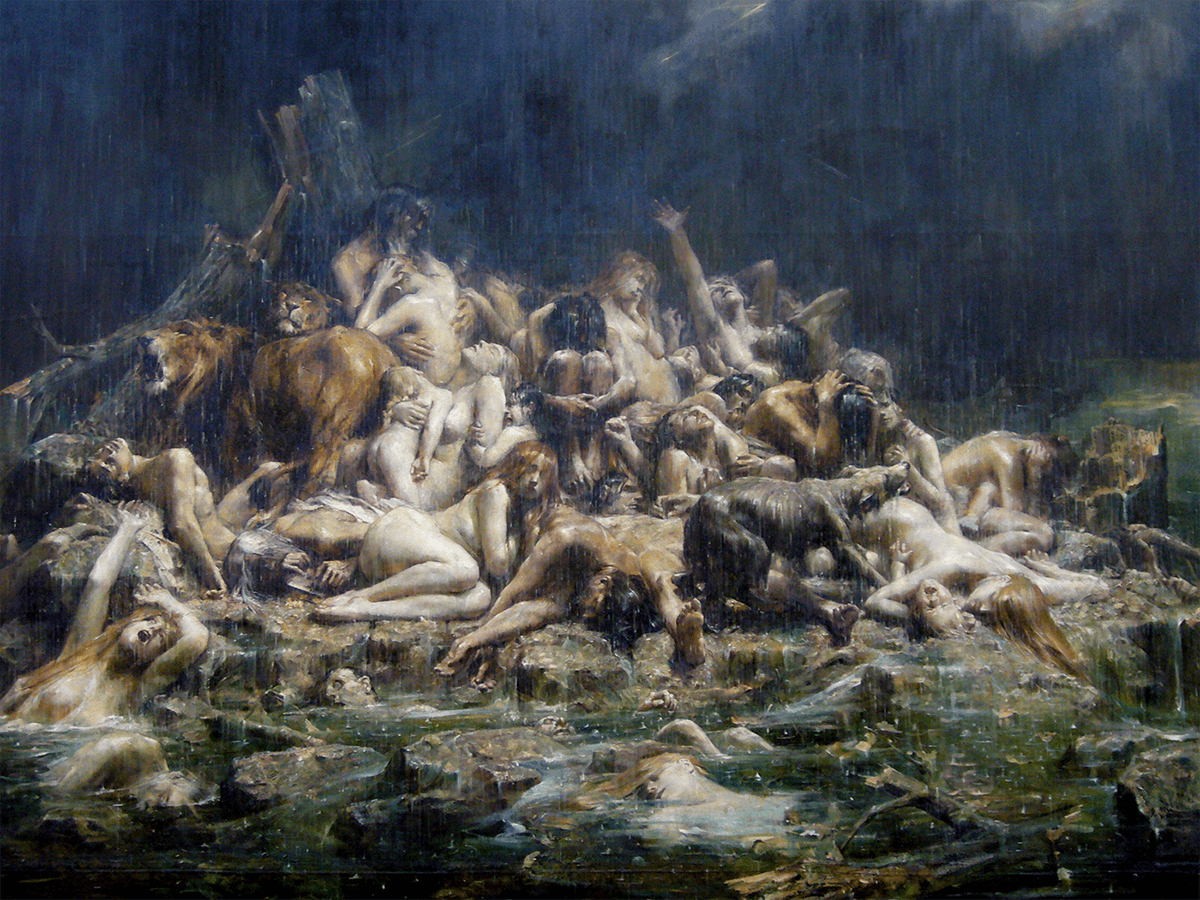

Our goal is simple: we are going to publish meaningful fiction or nothing at all
When we first thought about publishing this magazine, we wanted a literary journal with high-quality, meaningful fiction to counter the superficial junk so common in modern writing. Someone suggested the environment as a background theme and it seemed a good idea at the time. However, when we started doing research on the subject, we quickly realized how terrible the situation really was. The dangers are so great, immediate and obvious that we had to make the environment the focus of our magazine. Events since then have only confirmed our darkest views.
There cannot be the slightest doubt that the global environment is in crisis. The organizations best qualified to judge this (such as Greenpeace, World Wildlife Fund, Friends of the Earth etc.) are all crystal-clear about it. It is an existential emergency on a scale that dwarfs all other emergencies we have ever had. One of the worst, World War II, killed about 70 million people. The collapse of marine life alone would easily cause much greater carnage, and we are well on course to making that happen. And this is just one of the multiple threats facing the natural world and therefore humanity. Our "Facts" page features a selection of them.
These are desperate times, requiring desperate measures. But for many reasons humanity seems incapable of taking them. Far too little is being done.
We believe that our first priority is to make people aware of the gravity of the situation. It is going to take a gargantuan effort to undo the harm that we have been doing to the natural world for centuries. A little tweaking won't be enough. The very inconvenient truth is that saving the planet will cause major upheavals, cost fortunes and cause untold suffering, because we have left it all far too late.
In this situation it would be madness to attach too much value to pretty words. We are no longer seeking great writing, but meaningful writing. Of course it must meet certain minimum linguistic standards. But apart from that our main concern is content and not form.
We believe everything possible should be done to raise awareness of the terrible dangers we are facing and that writers can play a crucial role in this.
Unfortunately few seem to be doing so. Even our contests bore witness to that. Although the best stories, published in this issue, are all highly relevant and thought-provoking, the vast majority of entrants displayed the same lack of awareness as the general public.
This alone offers ample opportunities for essays and stories. What is causing this inaction? Why are we sleepwalking into the abyss? Are we not smart enough to understand what is happening? Has our world become too complicated for the average person? Are we no match for the deceptive tactics of big business? Have we become so addicted to our luxuries that we'd rather die than give them up? Are we too afraid to face reality?
In short: what's wrong with us?
Whatever it is, it has to be overcome. And fast.
What is needed now is fortitude, an unflinching determination to do what it takes, no matter what, because the alternative is simply unbearable. We must move from our unjust, wasteful and self-destructive society to a fair and sustainable one.
Perhaps it's worth recalling the words that Winston Churchill used on the eve of a much lesser crisis (WWII) to prepare the British people for the hardships ahead. He may not have been the nicest of men but certainly had a way with words.
"We are in the preliminary phase of one of the greatest battles in human history. I have nothing to offer but blood, toil, tears and sweat. We have before us an ordeal of the most grievous kind. We have before us many, many long months of struggle and of suffering. It will demand enormous sacrifices, but we can have only one aim. It is victory. Victory at all costs, victory in spite of all terror, victory, however long and hard the road may be, for without victory there is no survival."
There cannot be the slightest doubt that the global environment is in crisis. The organizations best qualified to judge this (such as Greenpeace, World Wildlife Fund, Friends of the Earth etc.) are all crystal-clear about it. It is an existential emergency on a scale that dwarfs all other emergencies we have ever had. One of the worst, World War II, killed about 70 million people. The collapse of marine life alone would easily cause much greater carnage, and we are well on course to making that happen. And this is just one of the multiple threats facing the natural world and therefore humanity. Our "Facts" page features a selection of them.
These are desperate times, requiring desperate measures. But for many reasons humanity seems incapable of taking them. Far too little is being done.
We believe that our first priority is to make people aware of the gravity of the situation. It is going to take a gargantuan effort to undo the harm that we have been doing to the natural world for centuries. A little tweaking won't be enough. The very inconvenient truth is that saving the planet will cause major upheavals, cost fortunes and cause untold suffering, because we have left it all far too late.
In this situation it would be madness to attach too much value to pretty words. We are no longer seeking great writing, but meaningful writing. Of course it must meet certain minimum linguistic standards. But apart from that our main concern is content and not form.
We believe everything possible should be done to raise awareness of the terrible dangers we are facing and that writers can play a crucial role in this.
Unfortunately few seem to be doing so. Even our contests bore witness to that. Although the best stories, published in this issue, are all highly relevant and thought-provoking, the vast majority of entrants displayed the same lack of awareness as the general public.
This alone offers ample opportunities for essays and stories. What is causing this inaction? Why are we sleepwalking into the abyss? Are we not smart enough to understand what is happening? Has our world become too complicated for the average person? Are we no match for the deceptive tactics of big business? Have we become so addicted to our luxuries that we'd rather die than give them up? Are we too afraid to face reality?
In short: what's wrong with us?
Whatever it is, it has to be overcome. And fast.
What is needed now is fortitude, an unflinching determination to do what it takes, no matter what, because the alternative is simply unbearable. We must move from our unjust, wasteful and self-destructive society to a fair and sustainable one.
Perhaps it's worth recalling the words that Winston Churchill used on the eve of a much lesser crisis (WWII) to prepare the British people for the hardships ahead. He may not have been the nicest of men but certainly had a way with words.
"We are in the preliminary phase of one of the greatest battles in human history. I have nothing to offer but blood, toil, tears and sweat. We have before us an ordeal of the most grievous kind. We have before us many, many long months of struggle and of suffering. It will demand enormous sacrifices, but we can have only one aim. It is victory. Victory at all costs, victory in spite of all terror, victory, however long and hard the road may be, for without victory there is no survival."
_cropped.png)
_small.png)
